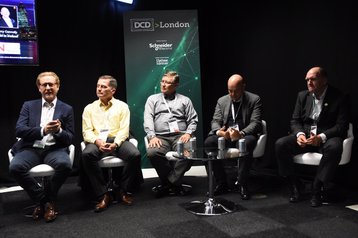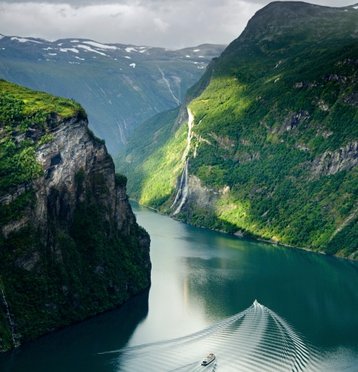With climate change growing more serious by the day, data centers need to do their bit to lower emissions and change how we consume energy.
At DCD>London, data center and energy providers sat down to discuss the challenges the sector faces, from renewable energy, to site location, to how we as a society use data.
The first question put to the panel was about capacity in a more sustainable world. Statkraft's Atle Haga was asked whether a green country like Norway could tolerate a large number of data centers.
“We have an oversupply of power [in Norway], and a very reliable system grid, which helps a lot," the VP of the Norwegian State-owned company said.
“Norwegian hydropower is linked to reservoirs on a very high altitude, which is very flexible… It has a large reservoir on top. And without a drop of precipitation, they can still continue to produce for three years. Basically, it's Europe's largest battery.
“Norway has a power surplus. And it's all renewable - you could that you could argue that it's only 98 or 97 percent renewable but what comes out of the socket in Norway is green.
"Along with the increase in years to come you [data centers] are very welcome to the region and to Norway.”
But, as Petter Tømmeraas, senior VP of Basefarm, noted, not every European country is like Norway, where hydro is easily available.
“Hydro is fine. It's possible to store hydro. But it's not possible at the moment to store wind or solar, the sun isn't always there and the wind isn’t always blowing," he said.
Changing views
Garry Connolly, president of Host in Ireland, brought the discussion round to the demands of shareholders. He believes that shareholders will change their attitudes to climate change, and gradually cause a push to more renewable sources of power.
He said: “You want energy to be efficient and you need fiber to distribute the photons after the electrons have changed, and whether it's 100, 90, 80, 40, the industry now is going for 100 percent, because the shareholders are expecting it. Follow the money.”
Location, location, location
Derek Webster, CEO of data center consultancy firm Andget, offered an alternative take - and talked about whether demand could be met despite moving to low data traffic areas.
His view is that the high energy costs of a data center in a large city could be mitigated by outsourcing lower priority workloads to cheaper facilities further away.
Similarly, moderator Emma Fryer of TechUK discussed the 80/20 concept, where 80 percent of data doesn't have to be treated like priority data and therefore doesn't have to lead to increases in costs.
Webster added: “The most responsible action you can take, is why not move them to where the actual need is? You could say, if you don’t need something delivered so quickly, you don't have to be in the flat market.
“You can shake up the market and say 'why am I in this location, feeding people videos of cats and [using] 40MW a year?'"
We need, he said, to give some "societal thought of the application to its location.”
This drew criticism from one of the panelists, Stijn Grove of the Dutch Data Center Association, who said that operators and even clients would be hesitant to move data to an area that they aren't familiar with.
Given the nature of the business along with the need for lower latency and support, he said: “These are hubs that you cannot place just anywhere, we have a lot of discussions in the Netherlands about how Amsterdam is bursting out. Everybody wants to be in that 20-mile range because of latency and fiber prices.
“The CEO of [banking group] ING [told me about] the importance of having a central location where you put all the knowledge and all the infrastructure. They are moving back towards Amsterdam, with all their people with all their resources.
“When you have that next to each other when you have also the whole ecosystem of companies that you work with sharing bank data, that is the real driver of your company.”
Data centers for good
Host in Ireland's Connolly added that the data industry should see itself as a force for change. “The data center industry can act as a catalyst to allow someone to go and build knowing that they are going to have a power purchase agreement."
This is vitally important, as "we're in real deep trouble, societal trouble, whether it's in Ireland, Norway, or in the Netherlands," he said.
“What we were encouraged by in Ireland is that we've taken a societal view - it's not acceptable to be just 39 percent renewable energy. We need to be at 75 percent by 2030."



